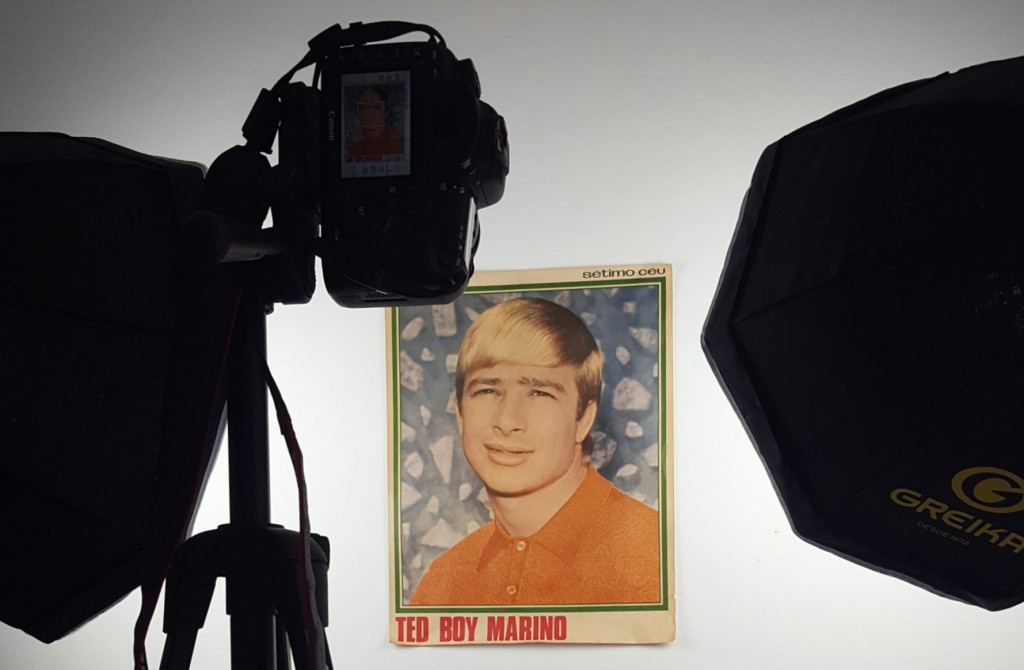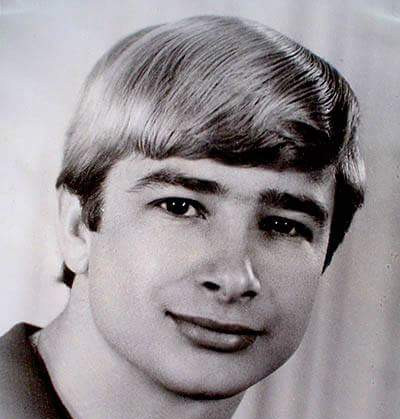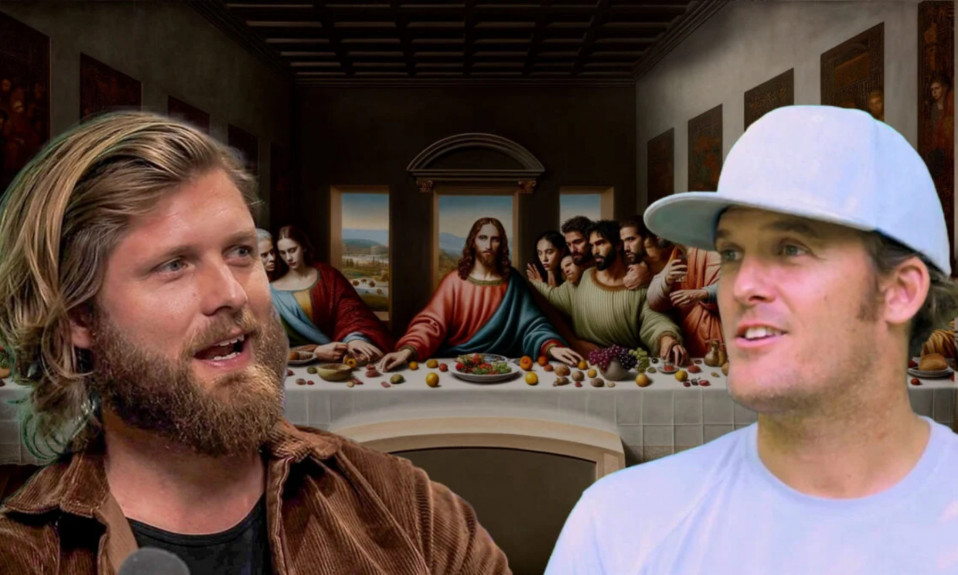Brazil is a country that suffers from something akin to an Alzheimer’s outbreak when it comes to the stories of those who shined; there are not many works and efforts to keep their memories alive, one exception being football legend Pelé. Among the forgotten is late Italian-Brazilian pro-wrestler and actor Ted Boy Marino (1939 – 2012) and two of his sons, journalists Ted and Tiago Marino, decided a decade ago to form a tag team to produce a documentary on their father, one of the major celebrities in the tropical nation in the mid-20th century.
“Ted Boy was very beloved. We interpret him as a superhero of his period, from the mid 60’s to early 70’s. Later he kept working on TV and became a person that TV station directors always wanted to see on the screen because Ted Boy attracted the public’s curiosity beside ratings,” says Ted Marino about his father in an interview with Big Picture Film Club. To him, the pro-wrestling father was forgotten by the media but is still cherished by the public, particularly by those who are above 50 years old and followed his career.

A recurring image of Marino consists of the agile grappler in the black speedo and white boots entangling the rival head with his legs and performing a somersault that brings the opponent to the mat; the audience in a packed stadium cheers and howls the blonde wrestler who just showed his finishing maneuver: the Flying Scissors (Tesoura Voadora). The excitement in attendance is shared by the millions at home watching in their TV sets: some coloured, some in Black and White, all watching the king of the local pro-wrestling scene, or “Telecatch” as how it was named in the nation.
Born in Italy, Marino escaped World War II with his family to Argentina, but it was in Brazil that the Roman centurion face, toned body, dark eyes, and blond hair in a bowl cut Marino became a hero figure in a country that was emerging in the international scene with samba, bossa nova, cinema novo and sports names like Pelé, tennis player Maria Esther Bueno and boxer Eder Jofre. To the nationals, Ted Boy Marino was hailed as one of those big names but the first blow he would suffer happened by the late 1970s, when pro-wrestling was assaulted by TV executives and the military dictatorship governing the country during those dark years, few in the country know the role the dictatorship it played in telecatch’s downfall.
“In the 70’s, the Telecatch started to lose momentum to other sorts of content and all of them started to compete for ratings. The Globo group changed its strategy to reach the audiences and changed its programming by relegating Telecatch in a second tier. To add insult to injury, the censorship imposed by the (governmental) dictatorship also started to boycott Telecatch as that sort of entertainment wasn’t aligned with the ‘values’ wanted by the dictatorial regime in power.”
Although pro-wrestling lost space to other productions in Brazilian television, different from many of his peers Marino kept displaying his acting skills and professionalism in TV shows and movies for decades. As happens to many talents and public figures in the country, it was in his winter that the invitations to be part of productions and public appearances dwindled. Hence, his children knew that it was up to them to remind their country of who their father was even considering the hardships of the Brazilian movie industry to those who aren’t tight with powerful players.
Dropkicking a concrete wall of barriers
A newsroom journalist, Ted felt the rude awakening of transitioning to film documentarist in a DIY operation, at the beginning he felt that some of the already existing archives were amateurish, still once he was able, he hired professionals to help produce his herculean task.

When asked about the initial barriers faced, Marino points out how the support of friends and professionals helped in the project. “I also rely on professional producers capable of correcting the amateurish work that was performed without much technical knowledge but needed to exist as they are because they reflect those times. Luckily, my producer side manifested in me before the need and the fact that only I could organize all those stories that were passed to me by my father, Ted Boy, during his lifetime, by his friends, relatives, and all documented history in his humongous personal archive. It is for a reason that we recorded him, and he comes as the fundamental piece telling his own story.”
Although Ted Boy was a fixture in Brazilian television sets, the Marino brothers are doing the legwork by themselves ranging from digitalizing the extensive archive owned by their father, interviewing the main character in his final years as also those who were part of his story, including leaving their home in Rio de Janeiro to other parts of the country and abroad.
“What I face in my quest for sponsorship and support is that biographical documentaries are not perceived as money makers by Brazilian investors. Which is what we lack to be able to finish it, including getting the authorization related to copyrights. For instance, we have footage in Italy, where he was born, in Argentina with his family that still lives there after fleeing from the war. Alongside my brother Tiago, I traveled for 20 hours to interview the wrestler Aquiles who lives in São Paulo’s countryside. Besides the vast documented material from those days, humorous illustrations also help us to tell this magnificent story,” points out Ted Marino.
Another issue is how demanding producing a film can be, in particular in a country that seems to be not only against memory but culture as well. “Sometimes I’m suffocated by my anxiety and by being hard on myself” reveals Ted Marino in our conversation.
The Brazilian duo is in a race against time as the contemporaries of their father are passing away; nevertheless, their documentary may entice the interest of viewers in countries like the USA, Mexico, Japan, United Kingdom, and Canada that have a developed pro-wrestling culture.
In our talk, I recall the younger Marino that in recent years Brazil has been producing biopics and series on some of its most acknowledged names among them pugilist Eder Jofre, and singers Elis Regina and Gal Costa. “I believe that great names don’t happen by chance. I can’t see someone, including those you mentioned, climbing the hill by chance. They were gifted. With Ted Boy things didn’t play out differently and once we started to look at his story, which few people know, it is hard to envision how high he climbed.”

The Marinos’ craft is not only based on devotion but on the hope of seeing their father and their work recognized and it strengthens the belief of the brothers in their film: “His story is segmented in rounds (the way we decide to cut it in the documentary). He was like a Brazilian superhero; you can ask that to any Brazilian 50 years of age or older. Still, when people become aware of what he went through to achieve what he did, when they can grasp what was the main goal of his life: hands will be clapped, and eyes will be teary.”
Although locked in an uphill battle, Ted Marino never lost sight of where their vision can lead and with the confidence of a superstar wrestler, he tells me about it: “We were able to produce a biographical work telling an emotional trajectory of struggle and overcoming the odds, which is so enthralling that it feels like a dramatic biopic that will appeal to many professionals. We want and believe that this documentary has an enormous potential to attract producers and writers from the movie industry to adapt it as a drama. I won’t mince words; his story is really outstanding!”
Also Read: Cassandro: Unveiling the Masked Emotions of Lucha Libre













